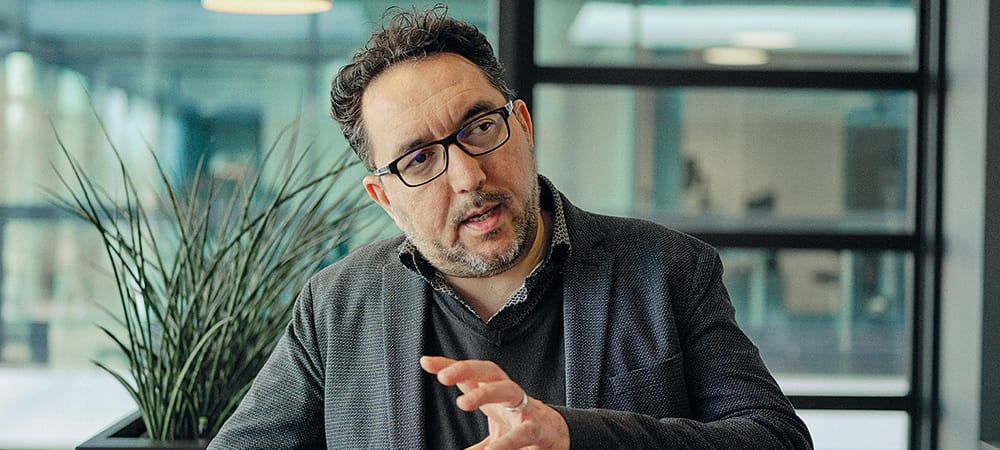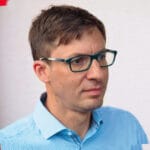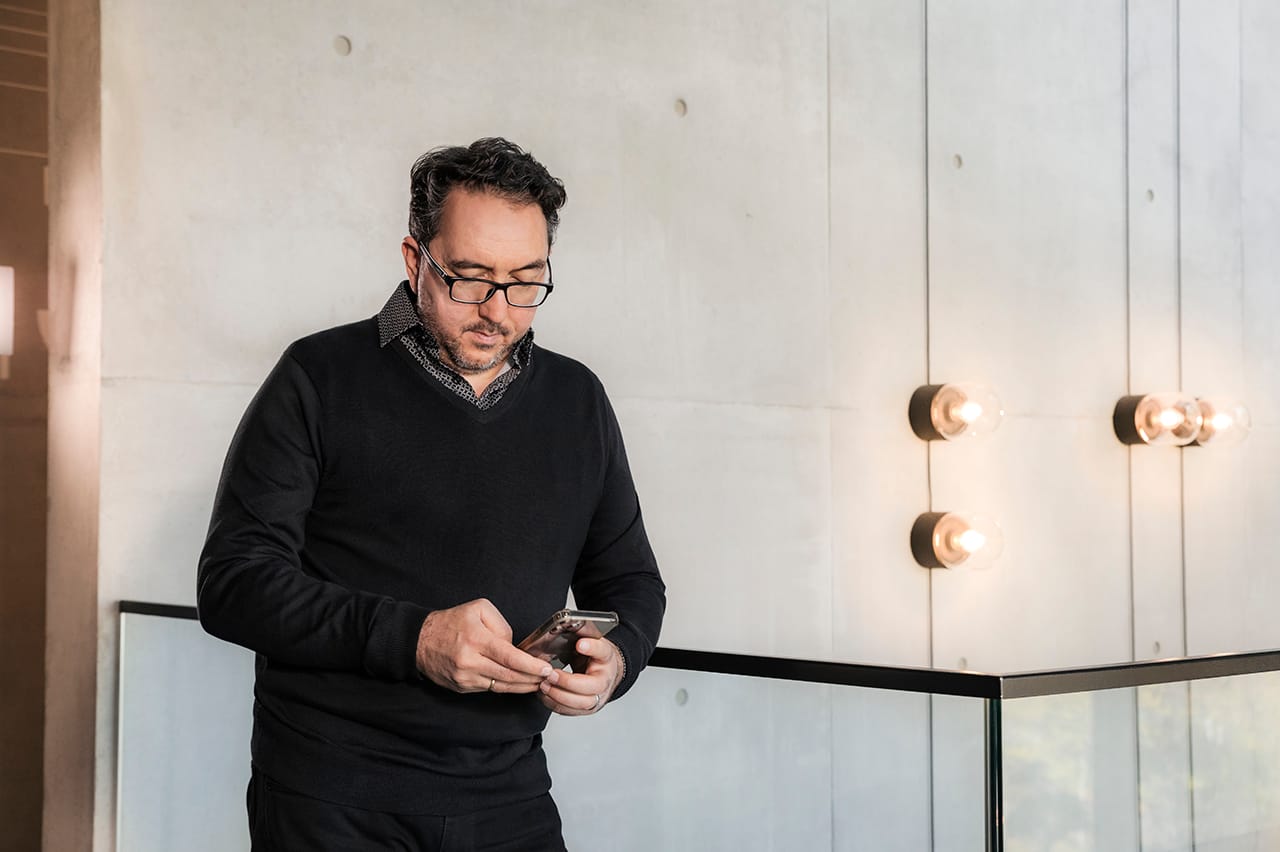E3 Exclusive Interview—Respect Is Not an Excel Number


E3: Mr. Younosi, why is it worthwhile to focus on diversity and equal opportunity for pragmatic reasons?
Cawa Younosi, Diversity Charter: Demographic change is real. There is a shortage of millions of skilled workers. If companies ignore 30 percent of the population—for example, those with an immigrant background—they are excluding themselves from the talent market. Diversity is not an end in and of itself—it is a business imperative. But it should never be argued solely as good business. Respect is not an Excel number; it is an attitude.

Cawa Younosi, Managing Director, Charta der Vielfalt e. V.
E3: When we move into the IT environment, diversity has already arrived in most companies. Many experts with a migration background work in technical professions. Do you still see a need for action here to address the issue?
Younosi: That is true, especially in IT—for example, in SAP consulting, skills are what counts. But these people are rarely found on management boards or in top management positions. There are foreigners on DAX boards, but they are often international managers, not people with roots in Germany's immigrant society. So, the glass ceiling is real—as it is for women—and it is noticeable.
E3: Diversity is more than gender or race. Which dimensions does the Charter take into account?
Younosi: We are talking about seven core dimensions: age, ethnicity and nationality, gender, physical and mental ability, religion and belief, sexual orientation, and social background. These are often intertwined—we call this intersectionality. This is what makes diversity so complex and so important. It's not about carnivals or rainbow rhetoric; it's about real equal opportunity, in the sense of Article 3 of the German Constitution.
E3: In the US, some tech companies are backing away from publicly visible diversity goals. What's going on there?
Younosi: It has a lot to do with political and legal developments. In the wake of court rulings in the US, some companies are dropping diversity goals for fear of being prosecuted for “discriminating against white applicants”. But this mainly affects the external image. Internally, much remains the same. Accenture and McDonald's have publicly adjusted their targets, but internally they are sticking to their diversity strategies. And this is also true for many companies in Germany.
E3: So it’s not really a step backwards?
Younosi: No. The vast majority of companies know that diversity is not only a moral imperative, but also an economic necessity. Those who completely ignore the issue now will lose out on the labor market in the medium term. We are even seeing new members—in the Diversity Charter—who are consciously setting an example and joining despite their American owners. This is a clear signal that the debate is being conducted differently in Germany, and that is a good thing.
E3: How has the focus of the Charter changed since you joined?
Younosi: I am the only one who comes directly from the business world and has focused on effectiveness and exchange on the ground—fewer publications, more dialogue formats, exchange of best practices, networking. Precisely because the issue of diversity is currently under pressure in parts of the public sphere, not only in the US, but also in Europe. Our goal is to objectify the narrative and to understand diversity as a question of values again—not as a headline for marketing or superficial promises.
E3: You repeatedly address the fact that inclusion is not just a question of fairness, but that society is also losing a good deal of potential. Does this mainly happen in recruiting or in internal development?
Younosi: Both. Six million people in Germany have no vocational qualifications—that's an enormous potential. At the same time, many companies are finding it difficult to move from degree-based recruiting to skills-based recruiting. This is easier to do in IT because technology is used to change. But in traditional industries, there is often a lack of rethinking. There needs to be more openness to lateral hires and more courage to promote talent beyond the traditional resumé.
E3: What does that mean in concrete terms?
Younosi: Employers cannot change people's individual lifestyles. Nor is it the role of employers to proselytize about which lifestyles are helpful or better for the economy and which are not. How have life plans changed, especially when it comes to women, caregiving, family and career? You have to realize that in 2025 the clear majority of families or couples are still opting for traditional patterns. It's frozen in time, and that's an obstacle. And that, of course, makes it more difficult for companies. When you say: I want to see more women in leadership positions, if people make a conscious decision. I'm not saying they can't. There are some who want to, but are unable or cannot afford to. Many make a conscious decision, and then there's not much you can do at the company. For example, if a woman decides to stay at home, there is huge potential. There are also those lost in the education system. It begins right after kindergarten—for every 100 children who start elementary school in Germany, 75 will graduate from high school if their parents are academics. If the parents are not academics, only 25 make it. That is an enormous gap. Just where you are born and how you go to school. And that continues with the dropout rate. It's been around six percent in Germany for years.
E3: What is going wrong in recruiting?
Younosi: In many companies, traditional hiring methods are still not used in many areas beyond references. In other words, there are hardly any managers who have undergone unconscious bias training, for example, to know what unconscious biases they are exposed to. That sounds like a nice-to-have, but it's not.
Many resumés seem well-rounded at first glance, but others reveal their true strengths only at second glance?
Younosi: There are the classic paths—internships at well-known companies, experience abroad, brilliant stations. And then there are other stories that are less polished, but often say much more about character, responsibility, and resilience. I remember a candidate at SAP. Her resumé was full of gaps, until we took a closer look. Between high school and college, she had taken over her parents' small grocery store when her mother became seriously ill. Purchasing, bookkeeping, responsibility for personnel—at the age of 18. That's pure entrepreneurial thinking.
E3: But that rarely happens in applications, right?
Younosi: That's the problem. If she had written that—"I want to take over my parents' grocery store"—she would have been rejected out of hand. Instead, a three-month internship at a management consultancy is considered more attractive. This shows that we need to be more sensitive when recruiting. When I know that not everyone has the same starting conditions, I ask; I delve deeper.
E3: What can a company do in concrete terms?
Younosi: First and foremost, raise awareness among managers. Unconscious bias is real, and it prevents potential from being recognized. At SAP, we held workshops on this topic. Not with a wagging finger, but with real examples. When I learn to look behind the façade, I often discover talents that I would otherwise have overlooked because they don't fit the usual mold.
E3: It is often said that white males' networks play a role in corporate careers. Is this true in your experience?
Younosi: Marginalized people come with virtually no network. Others have additional advantages because of their parents' academic background, regardless of their background. So, networks and how you deal with them is already an issue. Something that I personally experienced in the first few years when I joined: my colleagues would talk about tennis tournaments and sometimes golf. I was blank; I couldn't relate to golf or talk to them or anything else. It's not necessarily intentional discrimination; it's just that people tend to promote people who are similar to them. If I had told people that my father died while fleeing to Turkmenistan and I had to organize his funeral, or that my mother was deported to Turkey, it would have been difficult for me to find people with similar experiences to talk to. Other marginalized people have similar experiences.
E3: Today you are quite open about your history. Was it always clear to you that this was necessary in order to be a role model for young people?
Younosi: Think of podiums, panels, or management floors. If only men or people without a migration history are sitting there, it sends a silent signal: "You don't belong here." This is not symbolism—this is real exclusion. I've experienced it myself. In 2015/16, the FAZ asked me for the first time if I would like to write my story. I thought about it for a long time, because until then I had said that I was from Colombia, although I had come from Afghanistan in 1990 as an economic refugee without parents. I didn't want to be perceived as a destitute asylum seeker. When the request came from the FAZ, I was already head of HR at SAP Germany. Then I got over myself and received so many letters and emails etc. from people who also had an immigrant background.
That shows how important representation and role models are ...
Younosi: Yes, it has a huge psychological effect. If I only see "Christian", "Thomas" or "Andreas" on the management floors, I, as "Aisha" or "Mohammed", don't get the idea that I could ever belong there. This is not an accusation, but a structural problem. The glass ceiling doesn't affect only women—people from immigrant backgrounds simply don't reach certain levels. Although there are foreign managers on DAX boards, they often come from the US, France, or England. Migrants living in Germany are barely represented.
E3: What is your advice to managers?
Younosi: Show visibility. Show empathy. And above all, listen. When marginalized employees are seen and their reality is acknowledged, it creates loyalty and commitment. Not everything requires immediate programs or strategies. Sometimes an honest phrase like: I see you. That makes all the difference.



